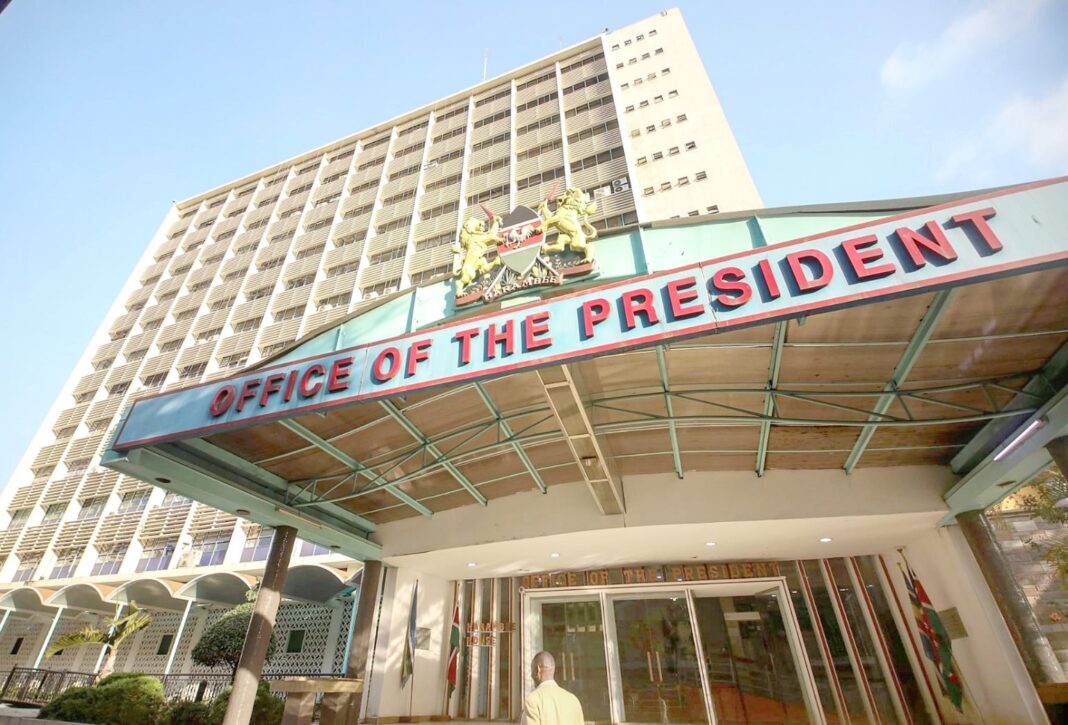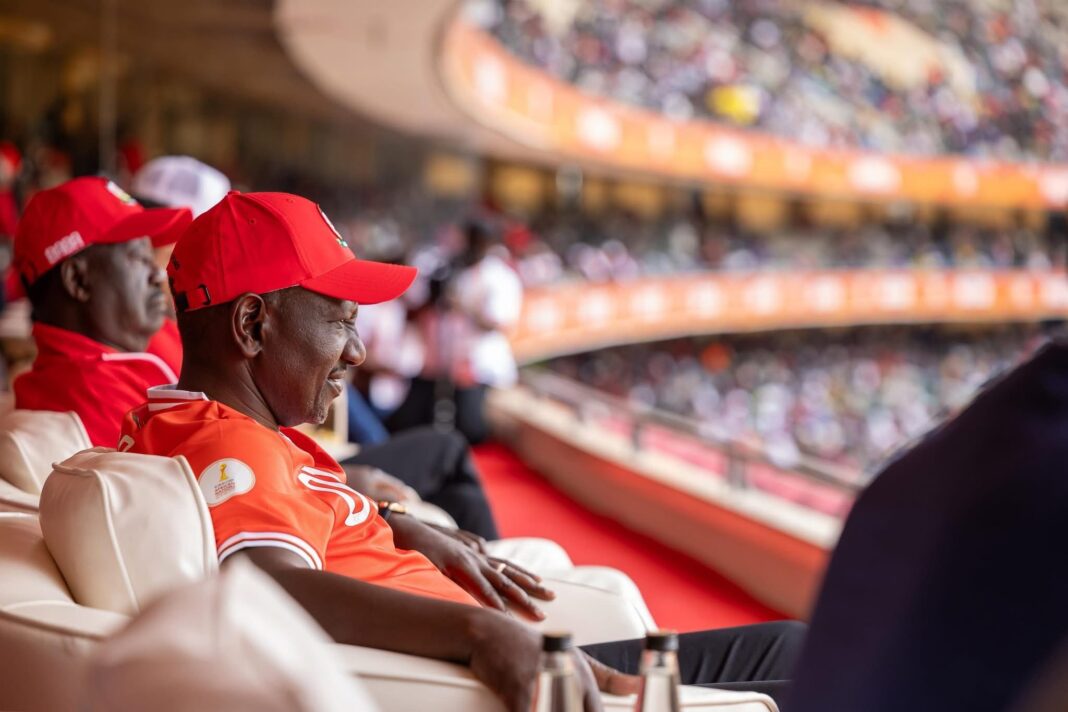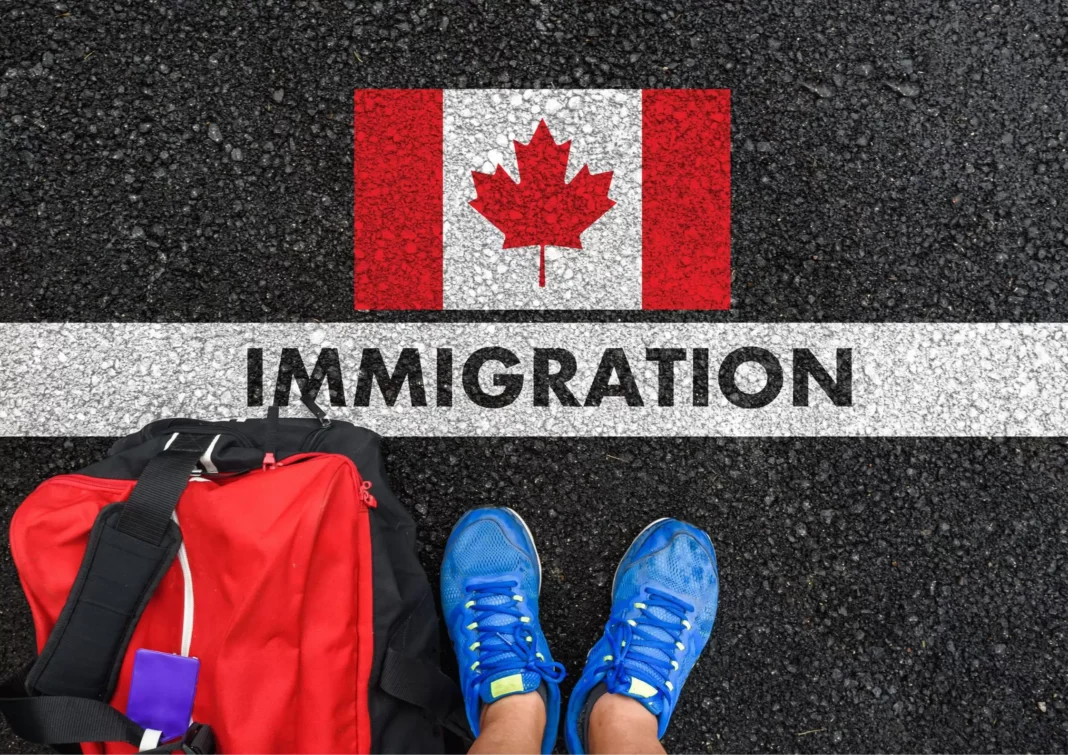The recent public discourse around Farouk Kibet’s influence within President Ruto’s administration has rekindled a familiar yet uncomfortable conversation about the nature of presidential power in Kenya.
While the term “deep state” often conjures conspiracy theories, the reality of informal power structures operating parallel to—and sometimes superseding the formal government institutions demands serious analytical attention.
When former Deputy President Rigathi Gachagua publicly declared that “Cabinet Secretaries report to him [Farouk],” he wasn’t merely airing personal grievances.
He was describing a shadow command structure that has profound implications for democratic governance in Kenya.
This phenomenon extends far beyond individual personalities to reveal fundamental weaknesses in how presidential power operates in practice.
The Architecture of Informal Power
What we observe in Kenya reflects a broader governance phenomenon that political scientists have documented across multiple continents.
The presidency, despite its formal constitutional powers, operates within a complex ecosystem where trusted intermediaries often wield more day-to-day influence than elected officials.
These gatekeepers accumulate power not through democratic mandate but through proximity, loyalty, and their ability to control access to the president.
Consider Dennis Itumbi’s remarkable admission about how he essentially appointed himself to the Presidential Strategic Communications Unit in 2013.
By quickly drafting a press release while President Kenyatta moved between television interviews, Itumbi bypassed the entire formal appointment process.
His account reveals how informal operators can exploit the chaos and time pressures around presidential schedules to create their own positions of influence.
The fact that he and his colleagues worked for a full year without pay demonstrates the long-term value they placed on access to power.
This pattern mirrors what we’ve seen in other contexts.
In Putin’s Russia, figures like Igor Sechin accumulated vast influence not as elected officials but as trusted operatives who managed the president’s relationships with oligarchs and security services.
Similarly, in Erdogan’s Turkey, presidential advisors and family members have wielded influence that often supersedes that of formal ministers.
The Farouk phenomenon illustrates how personal proximity to power translates into institutional influence.
His reported ability to publicly reprimand Governor Johnson Sakaja over Nairobi’s security arrangements despite holding no formal position in the security apparatus—demonstrates how informal authority can override constitutional hierarchies.
When Majority Leader Kimani Ichung’wah observes that “not even a minister can pass” if Farouk decides against it, he’s describing a fundamental inversion of democratic accountability.
The Presidential Vulnerability Paradox
The irony of presidential power is that those who appear most powerful may be most vulnerable to capture by informal networks.
The sheer complexity of modern governance creates dependencies that skilled operators can exploit.
Presidents cannot possibly manage every relationship, review every briefing, or oversee every decision.
This creates opportunities for trusted intermediaries to gradually expand their influence.
Lee Njiru’s decades of experience in presidential communications offer a particularly sobering perspective.
His observation that “the President doesn’t run the country… he pretends to run” reflects a troubling reality documented in his memoir about how handlers during Jomo Kenyatta’s later years exploited the aging president’s vulnerabilities.
The stories of presidential security details ransacking hotel rooms and stealing property while Kenyatta thanked hosts for their hospitality illustrate how completely informal networks can operate beyond presidential knowledge or control.
This dynamic isn’t unique to Kenya or even to developing democracies.
In the United States, figures like Karl Rove during the Bush administration or Steve Bannon in Trump’s early presidency wielded influence that often seemed to exceed that of formal cabinet members.
The difference in Kenya is the brazenness with which informal power operates.
When Kibet issues public directives to governors or when handlers openly manage presidential events, it suggests either extraordinary confidence in their position or a breakdown in the norms that typically keep such arrangements discrete.
Historical Patterns
The parallels between Kibet and Nicholas Biwott during the KANU era are instructive but not entirely comforting.
Biwott’s influence derived from his role as President Moi’s enforcer and strategic advisor, helping to maintain the one-party state through a combination of patronage and intimidation.
His nickname “Total Man” reflected his comprehensive control over government operations, often bypassing formal ministerial structures entirely.
What’s concerning about the current situation is how patterns established during authoritarian rule have persisted into the democratic era.
The expectation that access to the president should be mediated by personal loyalists rather than institutional processes reflects a continuity of governance culture that transcends political transitions.
Francis Kimemia’s frank admission that “the deep state exists” and his observation about international backing for preferred candidates reveals another dimension of this challenge.
These informal networks often extend beyond domestic actors to include foreign interests, business groups, and international organizations that prefer dealing with consistent interlocutors rather than navigating complex institutional processes.
The Rashid Echesa arms scandal provides a concrete example of how these networks can be exploited.
Echesa’s ability to arrange meetings with supposed American officials, apparently based on his perceived connections to State House, demonstrates how the mere appearance of access can be monetized.
Whether or not Echesa had genuine influence, his case shows how informal power structures create opportunities for both legitimate influence peddling and outright fraud.
Systemic Consequences for Democratic Governance
When unelected actors wield significant influence over policy and personnel decisions, the fundamental premises of democratic accountability begin to erode.
Citizens vote for presidents and parliamentarians expecting them to control government operations, not to serve as fronts for unaccountable handlers.
The policy implications are particularly serious. When figures like Kibet control access to the president, they effectively control the policy agenda.
Critical issues championed by ministers or parliamentarians may never reach presidential attention, while matters of personal interest to handlers receive disproportionate focus.
This distorts the democratic mandate and can lead to policy incoherence as formal and informal priorities diverge.
The institutional degradation is equally concerning.
When ministers find themselves seeking approval from personal assistants rather than following constitutional hierarchies, the entire architecture of government begins to collapse.
Civil servants learn to identify the real power centers, often bypassing their formal superiors to curry favor with handlers.
This creates parallel reporting structures that undermine institutional cohesion and professional norms.
International Comparisons and Lessons
Kenya’s experience with informal power networks reflects global patterns, but with distinctive characteristics that offer both warnings and potential solutions.
In countries like South Korea, the influence of chaebols (large business conglomerates) over government policy operates through more institutionalized channels, including formal advisory bodies and transparent lobbying processes.
While this creates its own democratic challenges, it at least provides some visibility into influence relationships.
Pakistan offers a more troubling parallel, where civilian governments have historically struggled against military and bureaucratic establishments that maintain their own foreign policy and security agendas.
The frequent inability of Pakistani prime ministers to access sensitive information or control security operations demonstrates how deeply entrenched informal networks can essentially capture state functions.
Even in established democracies, the challenge persists in different forms.
The revolving door between government service and lobbying in Washington creates informal networks that influence policy through personal relationships rather than transparent advocacy.
However, these systems typically include disclosure requirements, conflict of interest rules, and investigative journalism that provide some accountability mechanisms.
Addressing Kenya’s deep state challenge requires moving beyond personality-focused critiques to examine structural vulnerabilities in our governance system.
The problem isn’t that presidents need trusted advisors—every effective leader requires confidential counsel and loyal support. The problem is when these necessary relationships substitute for rather than supplement constitutional governance structures.
Meaningful reform must focus on institutionalizing presidential operations while preserving necessary flexibility.
This means creating transparent protocols for access to the president, documenting decision-making processes, and ensuring that advisory relationships operate within clear ethical boundaries.
It also requires strengthening parliamentary oversight capabilities to include understanding who influences presidential decisions, not just what those decisions are.
The civil service reforms initiated during various administrations have repeatedly stalled, partly because informal networks benefit from weak institutional structures.
Professional civil service systems with clear advancement criteria and protection from political interference can reduce opportunities for handlers to capture bureaucratic processes.
Perhaps most importantly, this challenge requires political will from the presidency itself. No external reform can succeed if presidents continue to prefer informal arrangements over institutional processes.
The current discourse around Kibet’s influence presents an opportunity for President Ruto to demonstrate commitment to institutional governance by clarifying advisory roles and ensuring that constitutional hierarchies are respected.
The stakes extend beyond any single administration.
How Kenya resolves this challenge will influence whether our democratic institutions mature or remain vulnerable to capture by unaccountable networks.
The conversation sparked by recent revelations should focus not on individual personalities but on building governance systems robust enough to serve future generations of Kenyan leaders and citizens.


